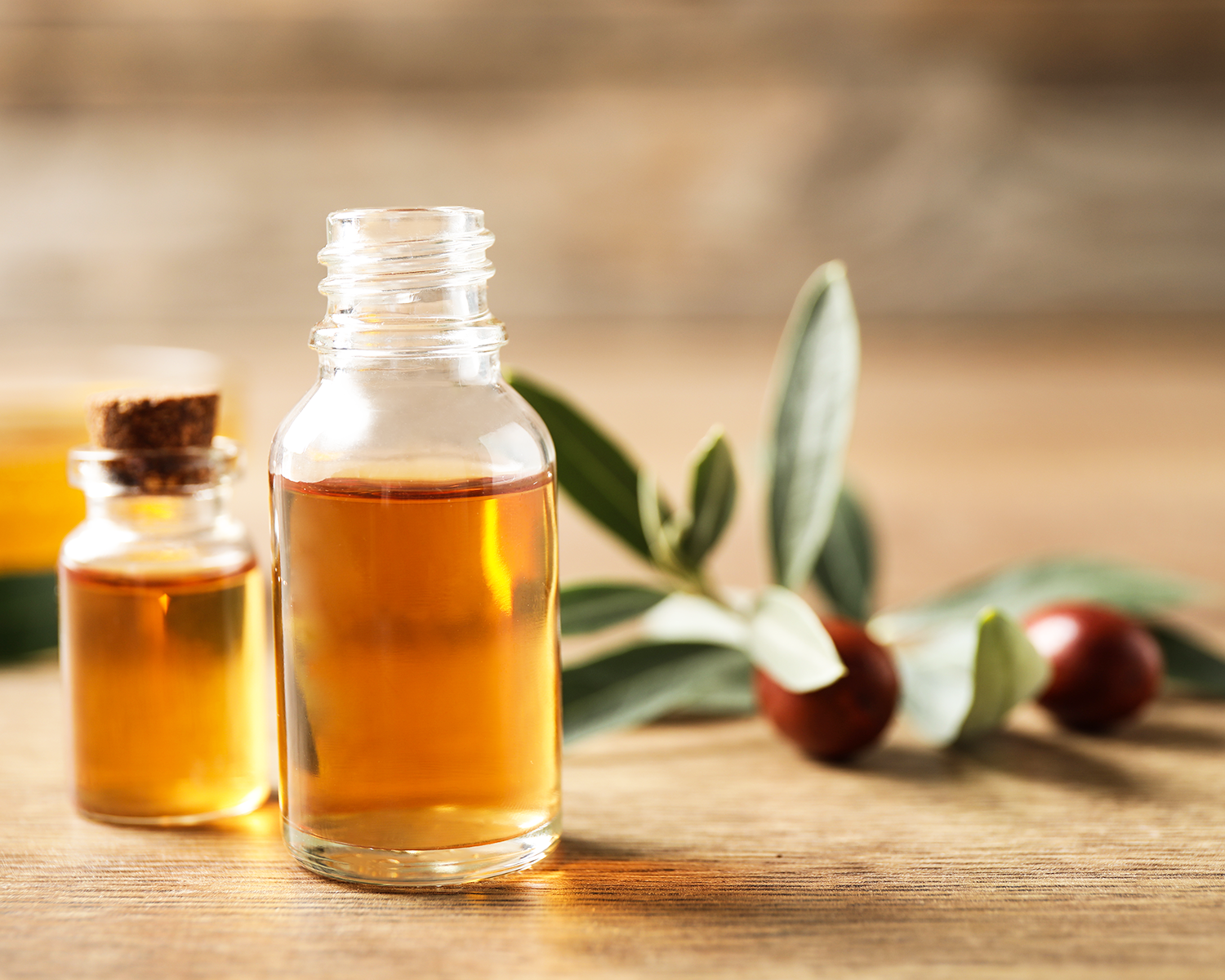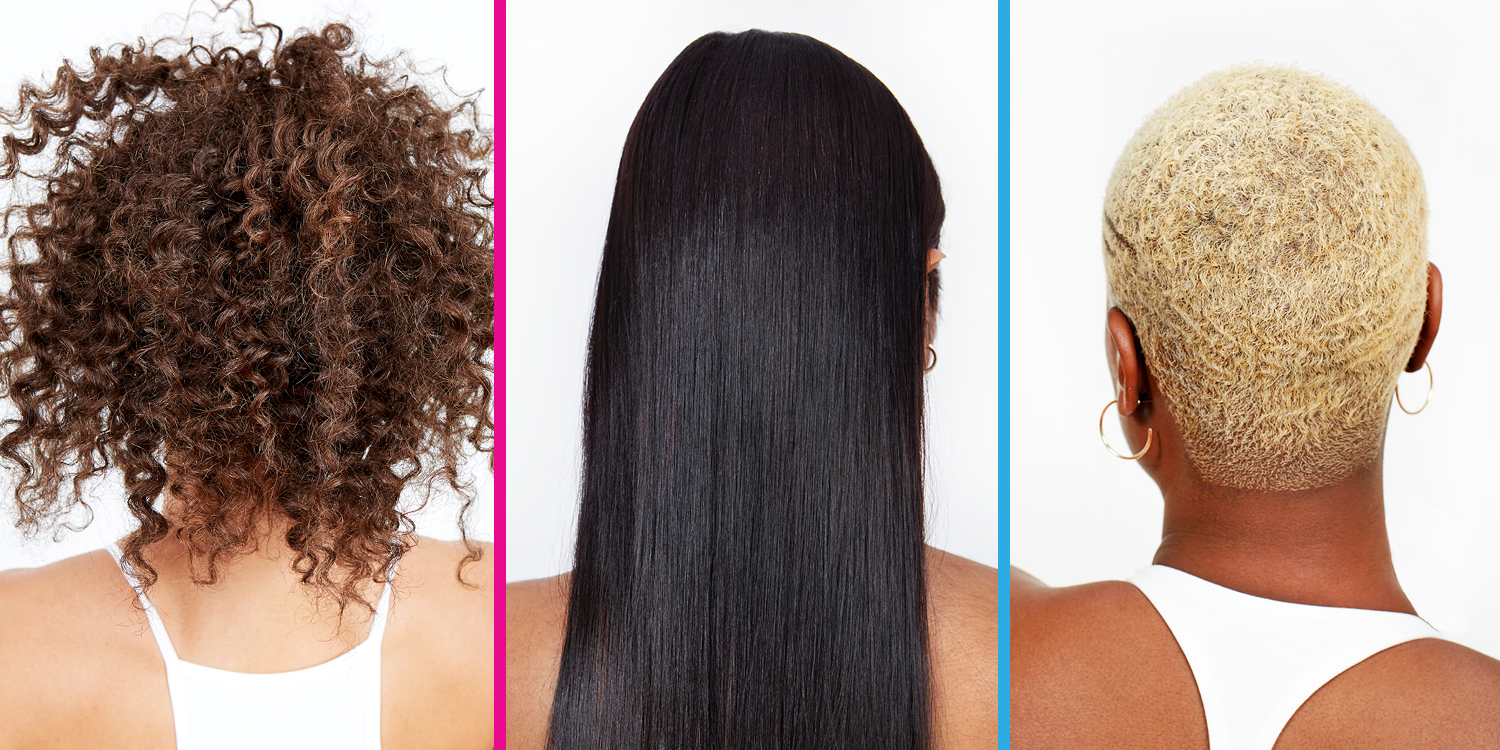Everything To Know About the Best Hair Oils for Natural Healthy Hair

Commonly used to moisturize and style, hair oil has made a name for itself thanks to the endless benefits it provides for all hair types – especially those with natural texture.
Whether you currently use hair oil in your routine or have only seen it in stores, there’s a lot you need to know about hair oil to use it properly. Below, we take a look at the benefits of using hair oil and the types that work best for natural hair. Oil might seem intimidating, but once you’re familiar with how to use it, this small change is likely to make a big impact on your overall hair health and texture.
What is Hair Oil?
Hair oil is a moisturizing product that you can apply to smooth frizz, add shine, manage hydration, and mask damage. But why do you need a dedicated product if your hair naturally produces oil?
As Jasmine Merinsky, a Toronto-based hairstylist, explained to HuffPost, “Similar to skin, we need oil to have healthy, strong hair. Oil lubricates the outer cuticle and strengthens the inner core by providing moisture to help keep the bonds strong.”
Celebrity Stylist Mark Townsend told Forbes, “The benefit in most of the oils is all the fatty acids, which replace the lipids in your hair when it starts to get really fine. Right before it splits, there’s nothing holding it together, and all those lipids need to be replaced.”
Some oils also offer heat protection, which can shield your hair from the damage and frizz caused by styling tools. So if you find yourself wondering “why is my hair so frizzy?” oil may be part of the solution.
What Is Natural Hair Care?
Natural hair care can mean different things to different people. To some, it involves using products that are derived from natural sources, such as plants. Most hair oils are natural, made from flowers, seeds, or nuts.
However, natural hair care can also refer to embracing and nurturing your natural hair texture – in other words, its state is unaltered by chemical processes, like relaxers or texturizers. While everyone has a natural texture, the term “natural texture hair” typically applies to natural Black hair, which, depending on what type of curly hair you have, can range from wavy to kinky or coily..
While anyone can use hair oils, they’re particularly beneficial for those with natural texture, which is often dry and coarse.
The Best Natural Hair Oils for Healthy Hair and Scalp
The benefits of hair oils are clear – but what is the best natural hair oil? Below, find a few oils that work especially well for natural textures.

1. Jojoba Oil
Jojoba oil is known for its similarity to the sebum our body already produces. It’s so similar, in fact, that when using jojoba oil for hair, our body can’t differentiate it from our natural oils, so it absorbs more easily. You might have heard about Jojoba oil in skincare products such as cuticle oils, but its other talent is working wonders for your hair.
Jojoba is a humectant, which means it helps retain and preserve moisture. It’s rich in vitamins and minerals that nourish hair, including vitamins C, B, E, copper, and zinc. Jojoba oil contains a natural form of vitamin E, which is an antioxidant. It can also help strengthen your strands and prevent breakage.
2. Sunflower Seed Oil
Derived from the easily recognizable big, yellow flower, sunflower seed oil is a fat- and antioxidant-rich oil loaded with beneficial ingredients – especially for dry, dull hair. Packed with strengthening oleic and linoleic acids, sunflower seed oil can help prevent breakage and promote healthy growth.
Sunflower seed oil is especially great for natural texture hair, which is often coarse and deceptively fragile. The oil helps hair retain moisture and makes it softer and easier to manage. While lightweight, Sunflower seed oil is an effective treatment for frizz and split ends.
3. Evening Primrose Oil
Evening Primrose is a flowering plant that’s primarily found in North America and Europe. The oil derived from this plant is a common ingredient in health supplements, topical treatments, and beauty products, and has been shown to treat a wide range of health issues, from skin problems like eczema and acne to more significant challenges like high blood pressure and nerve pain. This is because the oil is rich in fatty acids, which have anti-inflammatory effects.
Even in hair, Evening Primrose oil has anti-inflammatory properties, so it can be soothing on an inflamed scalp. It also fights oxidative stress and promotes healthy cell growth, which can lead to longer and stronger strands.
4. Babassu Oil
Babassu oil is made from a tree found in the rain forests of South America – where it’s often used for cooking and medicine. In some ways, Babassu oil is similar to coconut oil. It’s solid at room temperature, but melts at body temperature, making it ideal for use in skin and body products.
Babassu oil is packed with antioxidants and healthy fats, but it’s surprisingly lightweight, which makes it ideal for use on natural texture hair. It boosts volume and moisture without adding greasiness.
5. Safflower Seed Oil
Safflower seed oil is often confused with Sunflower seed oil, but the former is made from the seed of the Safflower plant, which is known for its bright orange and yellow blooms.
Safflower oil is high in oleic acid, or monounsaturated fatty acid, which allows it to easily penetrate the hair cuticle. It prevents protein loss and creates a healthy environment for growth, so using it regularly may result in healthier, stronger, and longer strands. Safflower seed oil is particularly good to use before heat styling, because it has a high smoke point; oils with a low smoke point may allow heat tools to essentially fry your hair.
6. Argan Oil
Argan oil is a popular ingredient in skin and hair care products (including New Wash Deep) because it’s full of fatty acids that support hydration. Argan oil is also rich in vitamin E, which can help prevent dryness and frizz. It contains linoleic acid (omega-9) and oleic acid (omega-6) which help retain moisture. As an added benefit, argan oil has been shown to protect hair from sun damage.

Hair oil can be beneficial for all types, but it’s particularly great for natural texture hair, which is often curly, coarse, and prone to dryness and breakage.
Choosing the best natural hair oil for healthier hair and scalp comes down to your unique texture and the benefits you want to achieve.
Curly Hair Oils: Which Oils Work Best for Curly Hair?
Most natural texture hair is curly, and when it comes to taking care of curly hair, the key is keeping it moisturized and therefore hydrated. Curls tend to be dry and more prone to frizz, breakage, dullness, and a lack of definition.
According to Refinery29, “There are two main types of hair oils: sealing and moisturizing. Sealing oils (think jojoba) lock in moisture, meaning that you'll need to start with wet to damp hair beforehand for them to really work. Moisturizing oils (we're talking coconut, olive, or avocado) are heavier than sealing oils and can be used alone to moisturize the hair.”
Sealing oils work to restore curly hair to its best state, keeping it shiny, hydrated, and strong, while moisturizing oils can be used as a deep conditioning or leave-in treatment. However, as heavier oils, they also come with some downsides – primarily, they can be difficult to wash out. To completely dissolve and rinse them out, you typically have to use a detergent-based shampoo, which strips your hair of its natural moisture and protective barriers. That creates the need to replace that moisture by adding oil again, resulting in a vicious cycle.
For an all-in-one option, opt for a styling oil, like Hair Oil, which contains a blend of natural oils and can be used on damp or dry hair to lock in moisture, seal ends, smooth frizz, and prevent future damage. It’s also easy to wash out, especially with New Wash, a gentle, non-detergent cleanser that is specifically formulated to dissolve oil without stripping your scalp of its natural moisture barrier.
Which Oils Work Best For Dry Hair?
When creating a hair oil routine for dry hair, base the type of oil to use on the texture and porosity of your strands.
Natural hair, which is often curly, is generally highly porous, which means that it absorbs and loses moisture easily. The bends and waves of curls also make it difficult for the natural oils of your scalp to work their way down the hair shaft. High porosity hair can benefit from heavier, moisturizing oils – just be aware of how much you use.
However, some natural hair can also be fine and thin, which would benefit from a lightweight oil that doesn’t weigh down your style or make it greasy, like Jojoba or Sunflower. Again, a blend of oils like Hairstory Hair Oil can help you reap the benefits of multiple oils.
Getting Naturally Gorgeous Hair
Hair oil is a game-changer for natural texture. It strengthens and hydrates, protects against heat damage, combats frizz, and adds shine. And there are so many ways to use it! In addition to working it through your hair to smooth and soften, try adding a few drops to your styling products for a dose of moisture and malleability.
Make sure there are oils in your cleanser, too; all New Wash types, for example, contain a mixture of Jojoba, Sunflower, Evening Primrose, Peppermint, vegetable, and Argan oils.
Now that you have the full scoop on how to add oils to your hair care routine, there’s no need to be intimidated. In fact, we’re guessing you’ll be in love with your shinier, healthier, naturally gorgeous hair – and you’ll never look back.
Sources:
Brucculieri, Julia. “The Best Way To Use Hair Oil, According To Experts.” Huffpost, 21 February 2019. URL.
Watson, Kathryn. “3 Reasons to Add Jojoba Oil to Your Skin Care Routine.” Healthline, 7 March 2019. URL.
Villareal, Myra, et. al. “Activation of MITF by Argan Oil Leads to the Inhibition of the Tyrosinase and Dopachrome Tautomerase Expressions in B16 Murine Melanoma Cells.” Evidence Based Complementary Alternative Medicin, 2013. URL.
Wallace, Tracey. “A Curly Girl’s Guide To Hair Oils.” Refinery29, 19 October 2018. URL.
Dias, Maria Fernanda Reis Gavazzoni. “Hair Cosmetics: An Overview.” InternationalJournal of Trichology, 2015. URL.
Wilson, Debra Rose. “10 Benefits of Evening Primrose Oil and How to Use It.” Healthline, 7 March 2019. URL.



